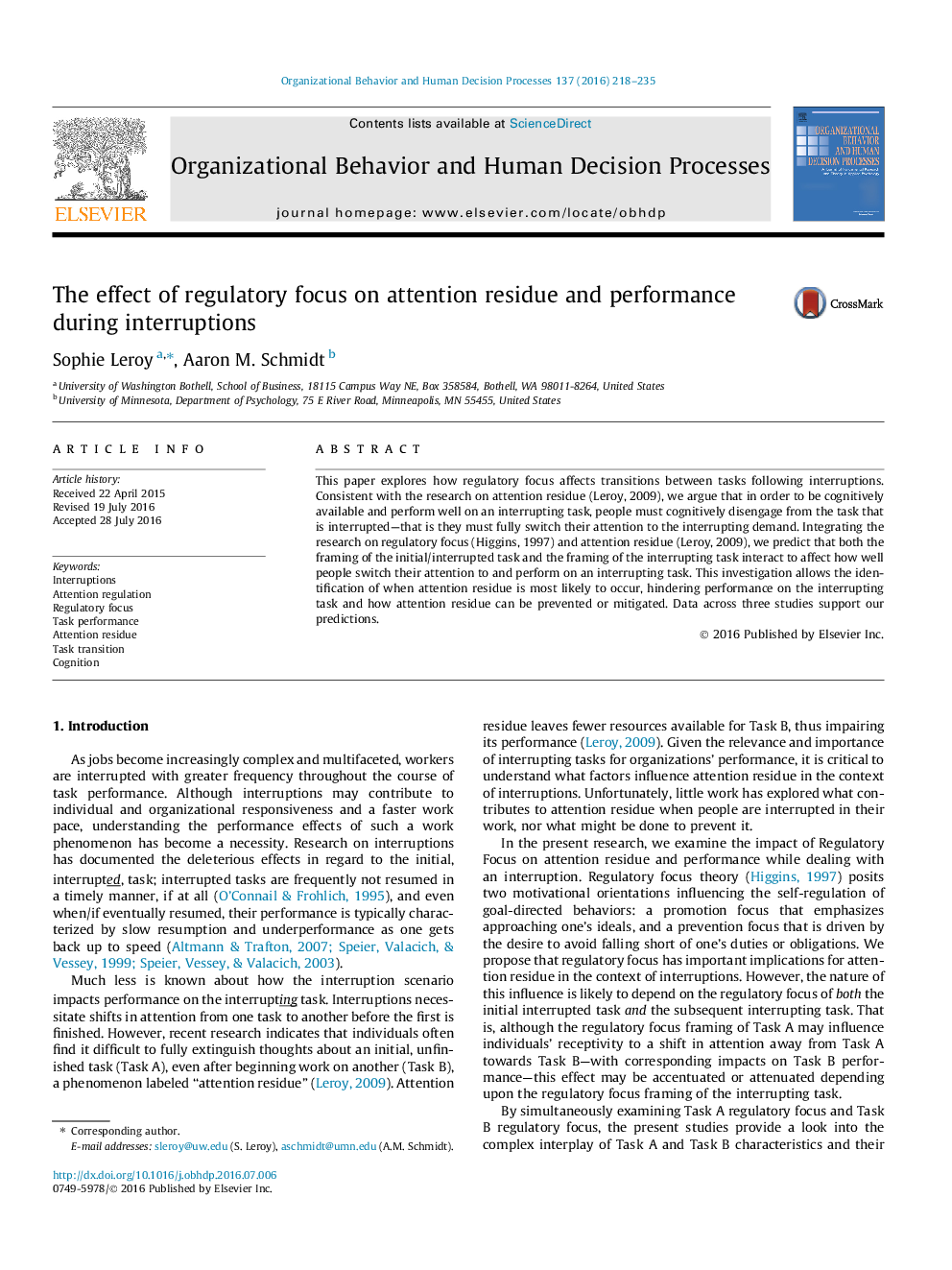| Article ID | Journal | Published Year | Pages | File Type |
|---|---|---|---|---|
| 7248122 | Organizational Behavior and Human Decision Processes | 2016 | 18 Pages |
Abstract
This paper explores how regulatory focus affects transitions between tasks following interruptions. Consistent with the research on attention residue (Leroy, 2009), we argue that in order to be cognitively available and perform well on an interrupting task, people must cognitively disengage from the task that is interrupted-that is they must fully switch their attention to the interrupting demand. Integrating the research on regulatory focus (Higgins, 1997) and attention residue (Leroy, 2009), we predict that both the framing of the initial/interrupted task and the framing of the interrupting task interact to affect how well people switch their attention to and perform on an interrupting task. This investigation allows the identification of when attention residue is most likely to occur, hindering performance on the interrupting task and how attention residue can be prevented or mitigated. Data across three studies support our predictions.
Related Topics
Social Sciences and Humanities
Business, Management and Accounting
Marketing
Authors
Sophie Leroy, Aaron M. Schmidt,
